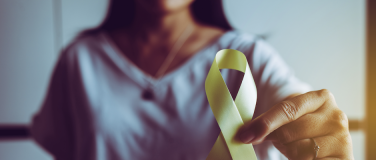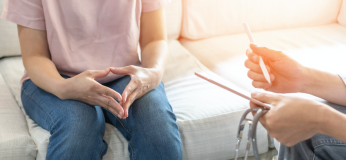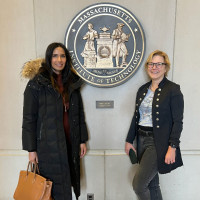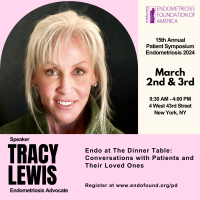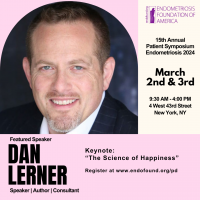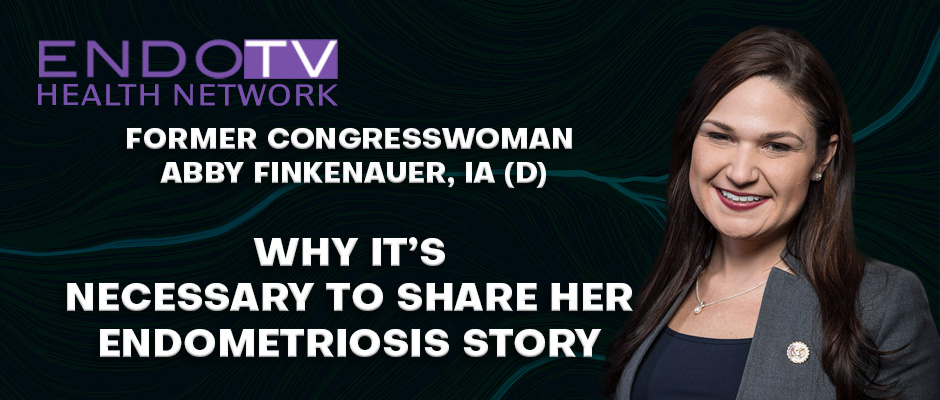
Abby Finkenauer, former Congresswoman for Iowa, made national headlines when she courageously shared her struggle with endometriosis on the House floor to announce the historic House Endometriosis Caucus in March 2020. During her term, Finkenauer helped to raise endometriosis funding to $26 million. After leaving office, the politician has continued her mission to fight for those with the illness. She joined Endo TV host Diana Falzone to discuss her new role as an ambassador for The Endometriosis Foundation of America, and why it was "necessary" for her to use her platform to uplift the issue of endo. To view the full interview visit EndoTV.com.
Abby Finkenauer: It's been quite the journey since I decided to share my story with endometriosis and went to the U.S. House to go do something about it. I wish I had started sooner, but it was one of those things where it didn't seem like the best time to uplift new issues. At the same time, I also thought, if I don't do this now, when will I share this? It was necessary and I'm glad I did it.
Diana Falzone: We have some very exciting news to share as well because you are now officially an EndoFound ambassador, so welcome to the team.
AF: Thank you so much. It means a lot. You know, the Endometriosis Foundation of America has been great to get to work with, and I don't know if people know this, but part of how I realized that I was one in ten, and how prevalent endometriosis was even though I'd been living with it knowingly since I was about eighteen or nineteen, was because of EndoFound’s website. Before, I still didn't know much about it. I didn't know how many people had it. I didn't know any of this. I think it was February of 2020, and I was unable to fly home that weekend—actually there was a lot of delay, so it was going to be difficult to get home anyway for a short weekend—but I also thought, oh my gosh, I can't sit in the Charlotte airport for eight hours because I'm in so much pain right now. I was doubled over and I started googling hysterectomies because I didn't know what care was out there. I didn't know anything. I just was like, how do I make this stop?
It was while I was googling that I came across the Endometriosis Foundation of America and found all of the stats about the condition. I realized, oh my gosh, we, as in Congress—which was me—have underfunded this condition. It's at the bottom of the National Institute of Health funding and it’s been forever since it's been funded at all. So, I thought okay, someone needs to do something about this and I'm in the position to do it.
DF: When you discovered how underfunded the disease was, and you thought, okay I'm in the position to do something, what was the process of coming forward with your story? Because it is so personal, and it is a topic that—as much as it should not be taboo to talk about menstrual disorders and women’s health—and I wouldn't want to say embarrassment, we're in 2021, but it's still a hush-hush kind of thing. The tides are evening out a bit but it's a male dominated community in which you are working. Were you thinking, okay, I'm going to go into this public forum and tell everyone about my health and my body?
AF: So it was very interesting. It wasn't my first time ever in public service. I had been in the state house four years before that, and I have talked about women's issues and women's health before, but I never ever shared my story with endo. It was also one of those things where—and I hate to say it this way, but it's true—when you are young and you are a woman and you're up against a lot of different stereotypes that people like to put on you, stereotypes such as you're inexperienced or you can't do the work, all of those things that people like to say. I remember thinking to myself, I can't give them one other reason to think I can't do this, and I think that's why I never shared the story when I was in the state house, because I just thought, okay it was too personal, it was too close.
But then when I was in Congress, I just got to the point again where I saw that number of how low that funding was, and how it ranked compared to all of these other conditions and diseases, and all of the things that men have and how much money those get, and here it was: the thing that one in ten women have, and it's at the bottom. I thought to myself, well now it's not really about me anymore, and now I'm in this really strong position to highlight this issue and to go fight for it, and it was just what I had to do.
There really wasn't any other option after I saw that number. I also realized there was no caucus. There's a caucus in Congress for literally everything. There's a big cat caucus and there wasn't one for endometriosis. I'm in this position, so let's just do it, and I'm not going to keep waiting for someone else to do it, so why don't I? It was scary to think I'm going to talk about this. I'm going to discuss my ovaries with my constituents, right?! I worked on a lot of issues with roads and bridges and infrastructure funding and trade, and I'm sure my district would probably have preferred me to just keep talking about all that. At the same time, what I realized after I shared my story was how many women, and men in this district, too, who, whether their wives have endo or whether their sister has it, were just so grateful that someone finally spoke up about it, and that to me was everything. It was worth taking that risk.



